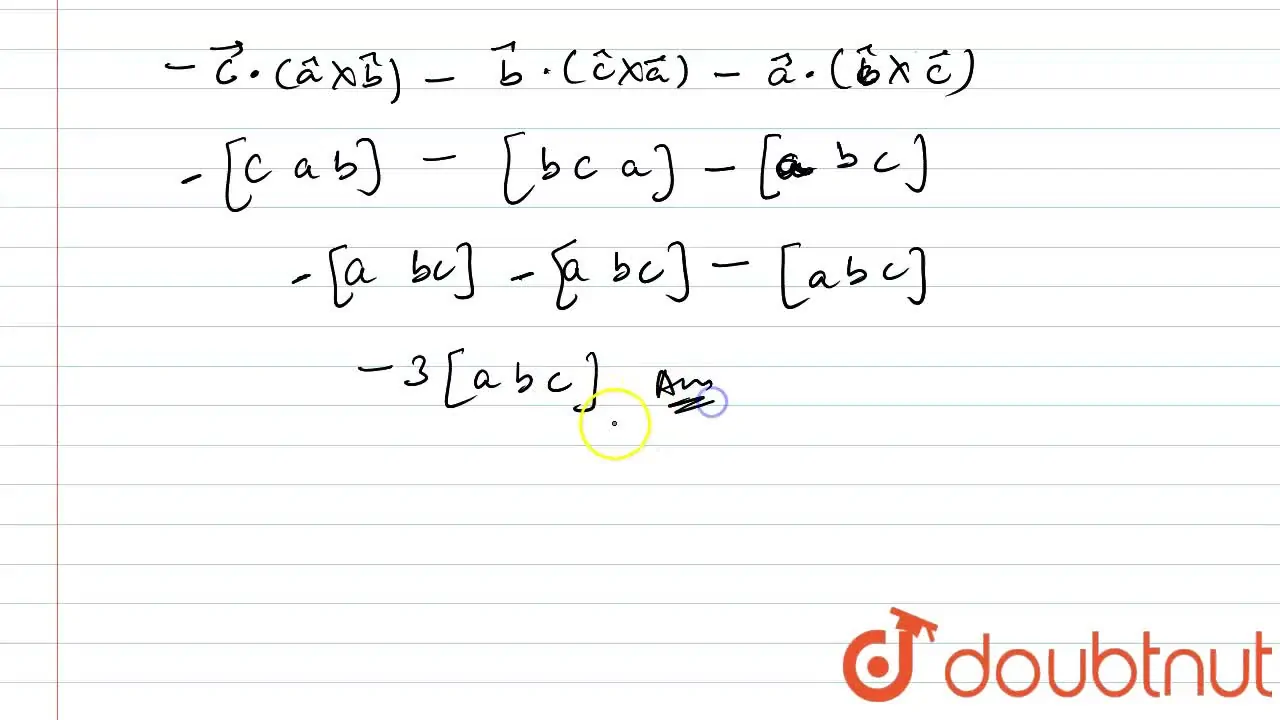If are any three non coplanar vectors, then is equal to
The correct Answer is:D
Clearly,
Related Playlists
- BOOK - OBJECTIVE RD SHARMA ENGLISHCHAPTER - SCALAR AND VECTOR PRODUCTS OF THREE VECTORS EXERCISE - Section II - Assertion Reason Type12videos
SCALAR AND VECTOR PRODUCTS OF THREE VECTORS
- BOOK - OBJECTIVE RD SHARMA ENGLISHCHAPTER - SCALAR AND VECTOR PRODUCTS OF THREE VECTORS EXERCISE - Exercise63videos
SCALAR AND VECTOR PRODUCTS OF THREE VECTORS
- BOOK - OBJECTIVE RD SHARMA ENGLISHCHAPTER - SCALAR AND VECTOR PRODUCTS OF THREE VECTORS EXERCISE - Exercise63videos
SCALAR AND VECTOR PRODUCTS OF THREE VECTORS
- BOOK - OBJECTIVE RD SHARMA ENGLISHCHAPTER - REAL FUNCTIONS EXERCISE - Chapter Test58videos
REAL FUNCTIONS
- BOOK - OBJECTIVE RD SHARMA ENGLISHCHAPTER - SCALER AND VECTOR PRODUCTS OF TWO VECTORS EXERCISE - Section I - Solved Mcqs12videos
SCALER AND VECTOR PRODUCTS OF TWO VECTORS
Similar Questions
If →a,→b,→c are any three non coplanar vectors, then
(→a+→b+→c).(→b+→c)×(→c+→a)View SolutionIf →a,→band→c are three non-coplanar vectors, then (→a+→b+→c).[(→a+→b)×(→a+→c)] equals
View SolutionIf →a,→b,→c are non-null non coplanar vectors, then
[→a−2→b+→c→b−2→c+→a→c−2→a+→b]=View SolutionIf →a,→b,→c are any three noncoplanar vector, then (→a+→b+→c)[(→a+→b)×(→a+→c)]is :
View SolutionIf →a,→band→c are three non coplanar vectors, then (→a+→b+→c)[(→a+→b)×(→a+→c)] is :
View SolutionIf →a,→b and →c are unit coplanar vectors, then
[2→a−3→b7→b−9→c12→c−23→a]View SolutionIf →a,→b,→c are three non-coplanar vectors such that →a×→b=→c,→b×→c=→a,→c×→a=→b, then the value of |→a|+∣∣→b∣∣+|→c| is
View SolutionIf →a,→b,→c are three non coplanar, non zero vectors then (→a.→a)(→b×→c)+(→a.→b)(→c×→a)+(→a.→c)(→a×→b) is equal to
View SolutionIf →a,→b,→c are non-coplanar vectors, then →a.(→b×→c)→b.(→c×→a)+→b.(→c×→a)→c.(→a×→b)+→c.(→b×→a)→a.(→b×→c) is equal to:
View SolutionIf →a,→b,→c are any three vectors such that (→a+→b).→c=(→a−→b)→c=0 then(→a×→b)×→c is
View Solution


